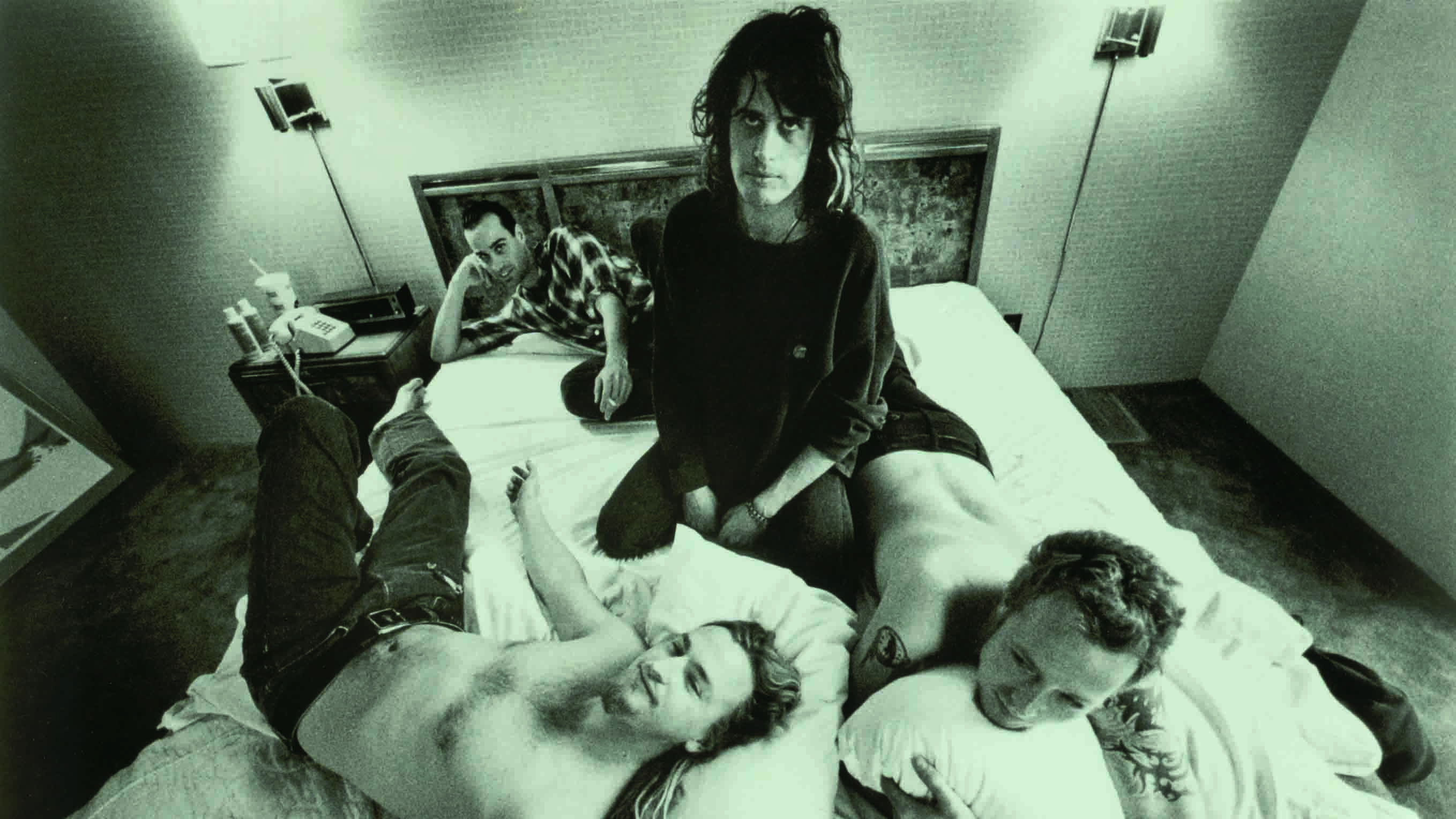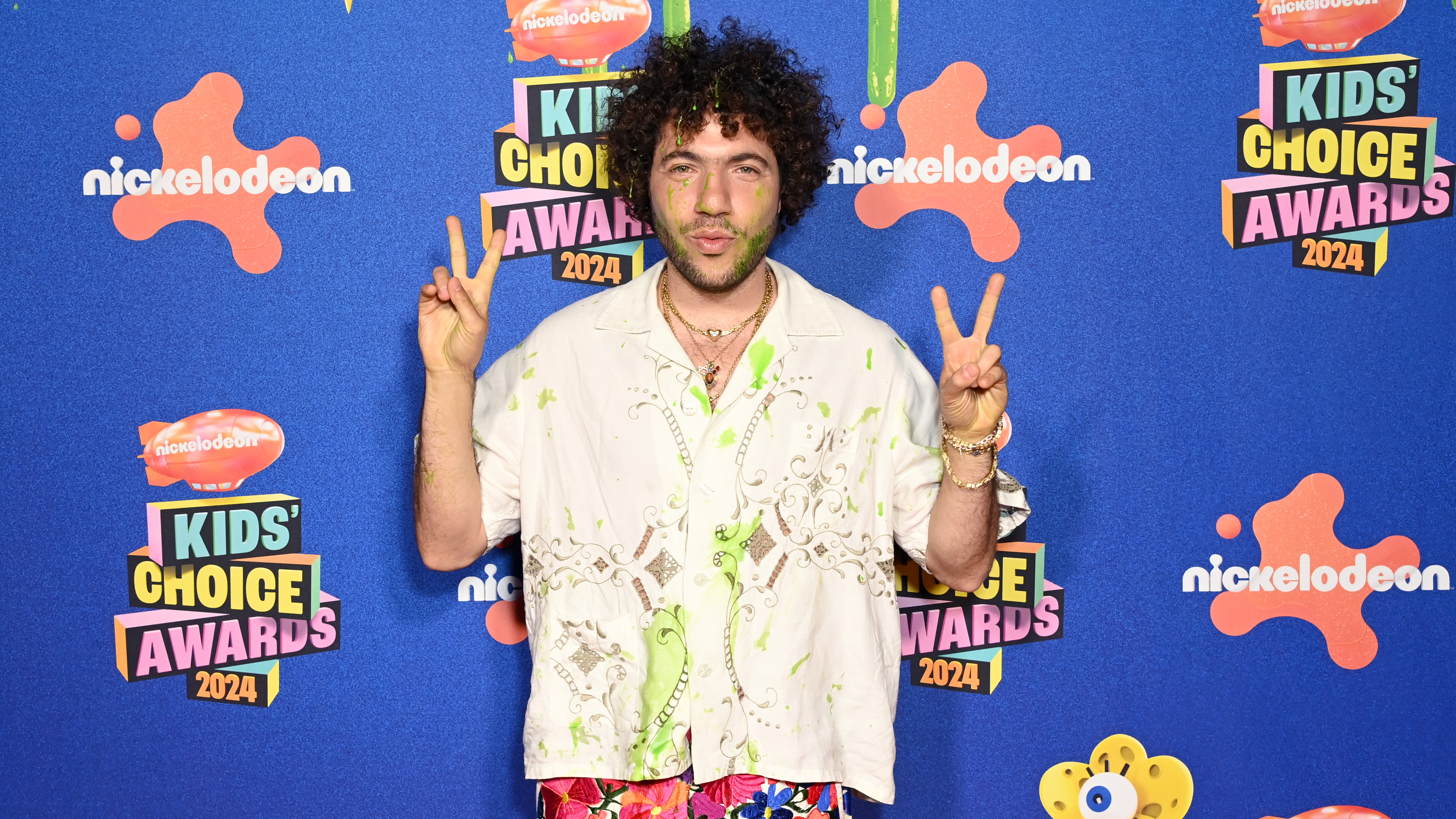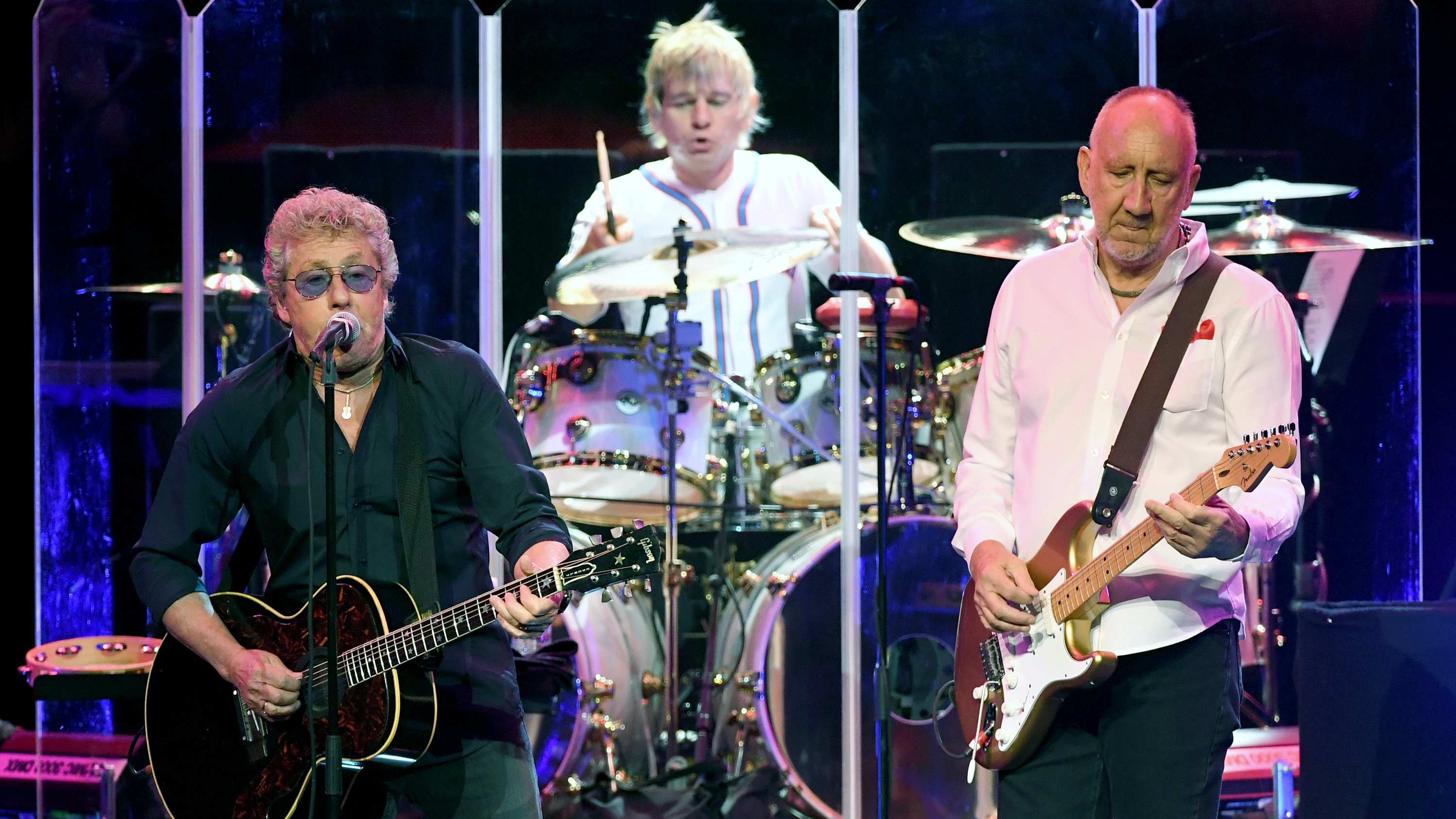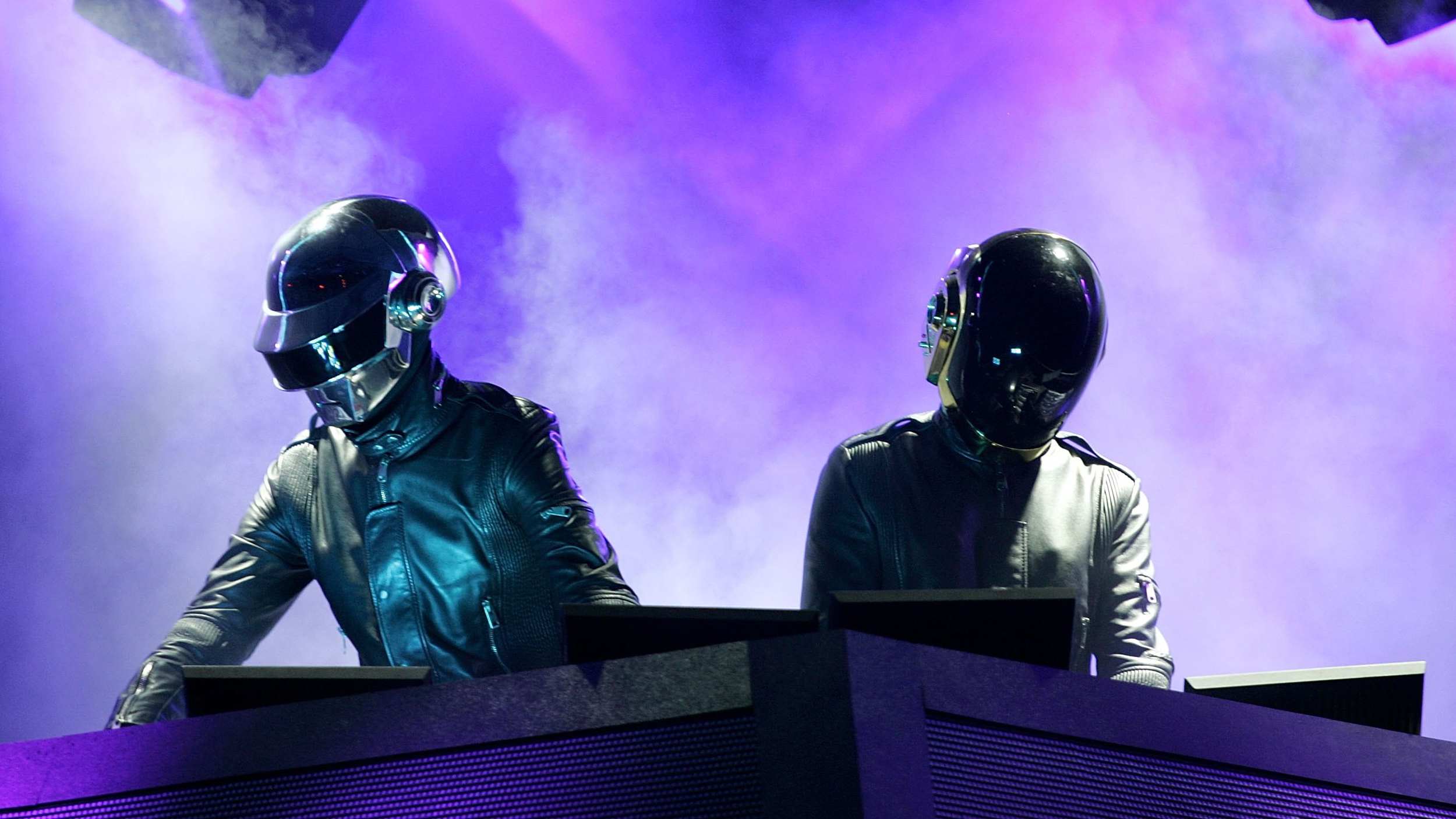Stone Temple Pilots' Robert DeLeo: “I love the personality that amps and basses give each part of the song. It’s like painting”
One of alt-rock's most tasteful bassists on STP's new album, gear and singer
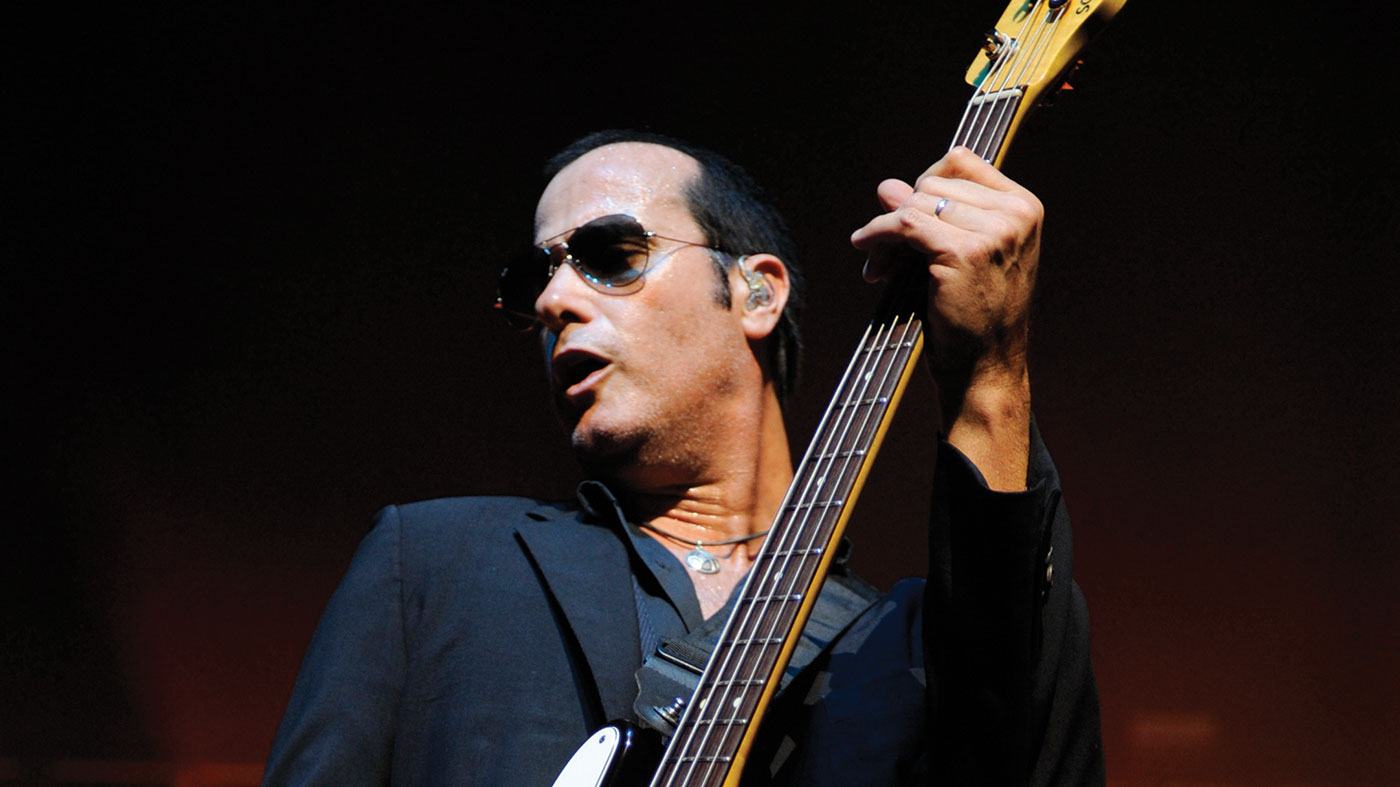
Stone Temple Pilots bassist Robert DeLeo has been through a lot in recent years. Fortunately his band have returned with a cool comeback album, a great new singer and a shedload of vintage bass gear to drool over. Joel McIver gets on the phone to California…
The Los Angeles-based band Stone Temple Pilots first emerged in the early Nineties as a grunge band, and like all the survivors of that scene, have morphed over time into simply being a melodic rock act, without any of the emotional trappings of the movement that spawned them. In this band’s case, their continued survival is fairly miraculous as they’ve lost not one but two lead singers.
I have a 16-track Neve desk in my basement and a 24-track recorder and that’s where we made most of the record
The first, Scott Weiland - who also sang in the supergroup Velvet Revolver - was a gifted but seemingly cursed figure, bedevilled by addiction issues that cost him his life in 2015; his replacement, Chester Bennington - also of the massive nu-metal band Linkin Park - committed suicide last year, plagued by depression. Such are the tragic breaks in heavy rock, friends, and the world is a sadder place as a result.
Picking up the phone to STP bassist Robert DeLeo, then, you might expect him to be a fragile character. Instead, he’s on great form, a relaxed Californian chap who loves his craft and is full of optimism about his future. As well he might be, because his band have a new singer called Jeff Gutt - a former X Factor USA contestant - and a killer new album which, like the previous one released in 2010, is self-titled.
The new album is full of cool bass parts, Robert.
“Well, what lends itself to that is the fact that I have a studio in my home, so the others have to come to me! I didn’t have to drive through LA traffic to get there. I have a 16-track Neve desk in my basement and a 24-track recorder and that’s where we made most of the record.”
Did you produce this one?
Get the MusicRadar Newsletter
Want all the hottest music and gear news, reviews, deals, features and more, direct to your inbox? Sign up here.
“It was a bit of all of us, digging in, but as the main songwriters, you know what you want to hear. I think we know how to produce by now, ha ha! You always talk about bringing someone in, and maybe someday we will again; I learned a lot from making records with Brendan O’Brien, for example. I couldn’t think of anyone better to make records with.”
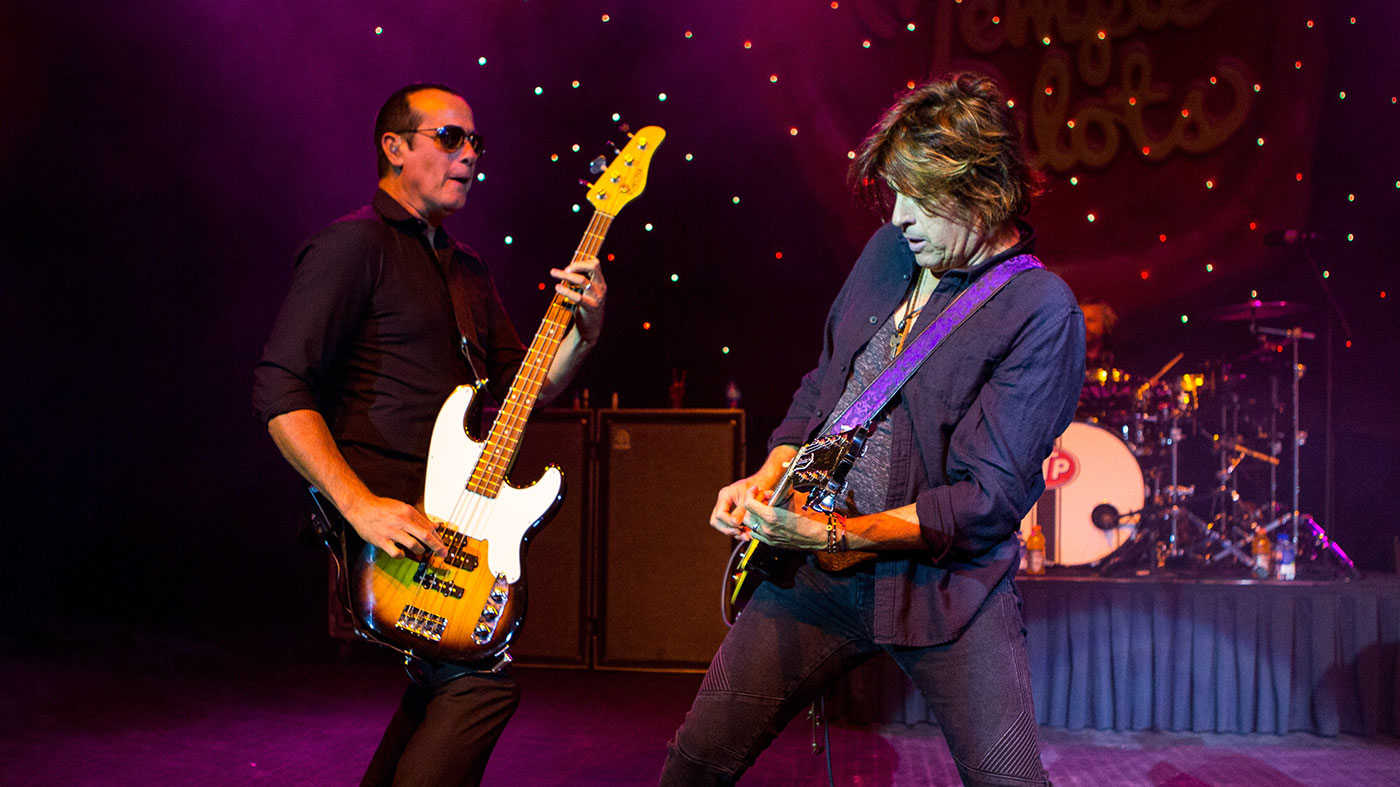
Gear geek
What bass gear did you use?
“It’s the same setup I’ve been using since the Tiny Music… Songs From The Vatican Gift Shop album back in 1996. I guess it always comes down to midrange - trying to get the midrange to stick out. I used to have a wah pedal in the chain that ended up going through a Marshall, but what I’ve found works better than that is to combine three different bass sounds.”
Can you run us through them?
I disconnect the speaker in the [Ampeg VT22] combo, and just run the power of the combo through a 1970 Marshall 8x10 cab
“The first is an Ampeg VT22 guitar combo, believe it or not. It’s basically a V-4 guitar head in a combo form; there’s a famous picture of Keith Richards sitting on one. The V-4 is a 100-watt head, and the VT22 is a smaller 2x12 version of it. What I do is disconnect the speaker in the combo, and just run the power of the combo through a 1970 Marshall 8x10 cab. That gives me a real growly, gritty sound when I want one. Then there’s a direct sound, and the third sound is a 1967 Ampeg B15. I take those three sounds and mix them all together. Depending on the song, the Marshall or the B15 gets pushed more. I used vintage Sennheiser mics on the cabs.”
Sounds like you’ve got plenty of gear to choose from.
“Yeah, I’m kind of a gear geek. I love the personality that amps and basses give each part of the song. It’s like painting; I love setting these things up and getting a sound, except when they’re not working! For that, I have to give huge credit to three people; Ryan Williams our engineer, who is the key element of our recordings; Bob Dixon, who is a great amp repairman; and Charlie Bolois, who helps vintage stuff to continue to have a life.”
Where do you get your older instruments from?
“I was fortunate enough to connect with a vintage guitar store which closed down around the year 2000; the owner had been collecting gear for about 40 years. I acquired a lot of really beautiful instruments from him, and they don’t really leave my house. I just use them for recording. You know, you put a certain instrument in your hand and it makes you feel a certain way. You pick up a Ricky and you immediately think ‘Geddy Lee… Chris Squire!’”
Road hogs
You were on our cover back in 2014, and we sent over a photographer to shoot you with your basses.
“I’ve actually enlarged the collection since then. I recently bought a really beautiful 1971 Rickenbacker; I believe there were only 20 of them made that year. It has a three-piece walnut headstock, with crushed burl, and a Fireglo finish; it sounds really, really good with flatwounds.
“I used to have a 1976 Ricky in Tuxedo White, and got rid of it in order to get the ’71. I played it with my thumb because I was shooting for that Paul McCartney feel, and I’m not really a pick player.”
Any Gibsons in the collection?
“I have two Thunderbirds, one with flats and one with roundwounds, but I didn’t use them this time. They’re great-looking basses, though; I like getting them out just to look at. I think it was a car designer who came up with that body design. Mine are Bicentennials from 1976; they stay in tune better than the older ones. I’ve never found one from the ’60s that I really enjoyed. The ’76s are modelled on the ’63s, I think; there’s something wonderful about them.”
What do you take out on the road? Presumably not vintage instruments…
“No, my tech Bruce Nelson made me a couple of basses; he works for a company called Tom Anderson and made me some basses out in his garage. They’re Olympic white and they’re a combination of P and J basses. They have a six-bolt plate, brass nut and saddles, with Lollar P/J pickups. I love those basses. I’ve got a Hipshot on there which comes in handy for a low D note. There’s nothing worse than having to detune manually in front of people.”
Do you prefer four-string basses?
“I play four; that’s the way they’re intended to be. All my idols played four-strings. I do enjoy playing six-string bass, though - that’s real fun. We put mine through a little vintage Ampeg.”
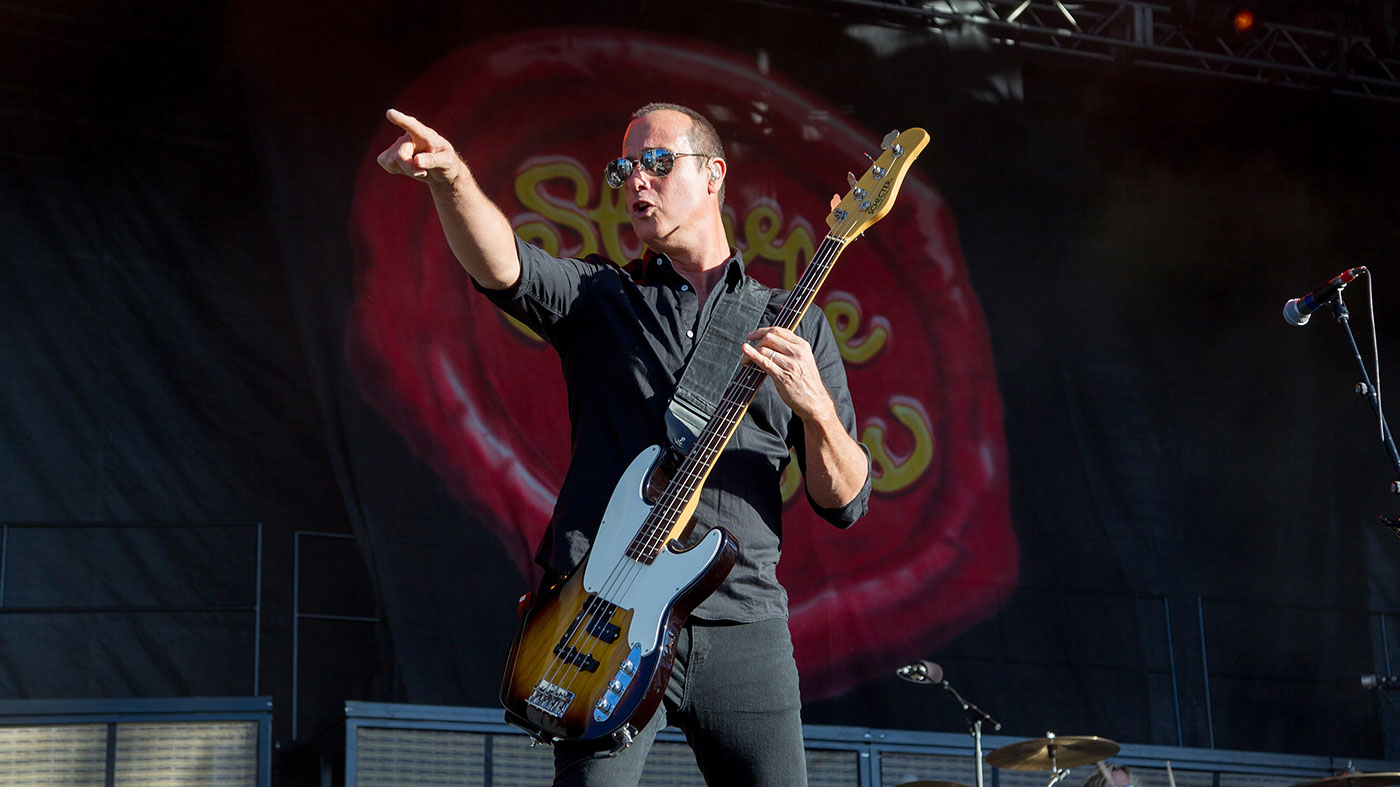
Finding the frontman
Your new album comes after a lot of turbulence in your band.
“A lot of life has passed, and a lot went into the record. I’m really thankful that Jeff came along; it’s one of those needle-in-a-haystack kind of things. I guess it’s what you put out there into the universe. The only thing we had to prove was making the best songs we could make. That’s really what we’ve always tried to do. I never had any intention of being famous or being a rock star; I just wanted to write songs.”
How did you go about finding a new singer?
We didn’t discriminate against anyone. We personally went through 15,000 to 20,000 people [to find a singer
“Well, everyone submitted their talents and it was a very long process. You know, we gave everyone a chance. We didn’t discriminate against anyone. We personally went through 15,000 to 20,000 people. It sounds like a lot, and it is, but it was easy to tell who would fit and who would not. It came down to trying out about 20 people; there was a great deal of talent, and a lot of brilliant voices.”
How’s Jeff working out?
“Jeff has proven to be very stable and considerate and humble. To be able to go up and take the reins from two singers that have passed away and left quite a mark on music is not an easy task to ask of someone. He’s handled it very well and we’re very proud of him. We picked the right person.”
Thanks, Robert - and by the way, one song on your new album, Thought She’d Be Mine, is lodged in our brain and won’t let go.
“Glad to hear it. Mission accomplished!”
Stone Temple Pilots is out now on Rhino.


